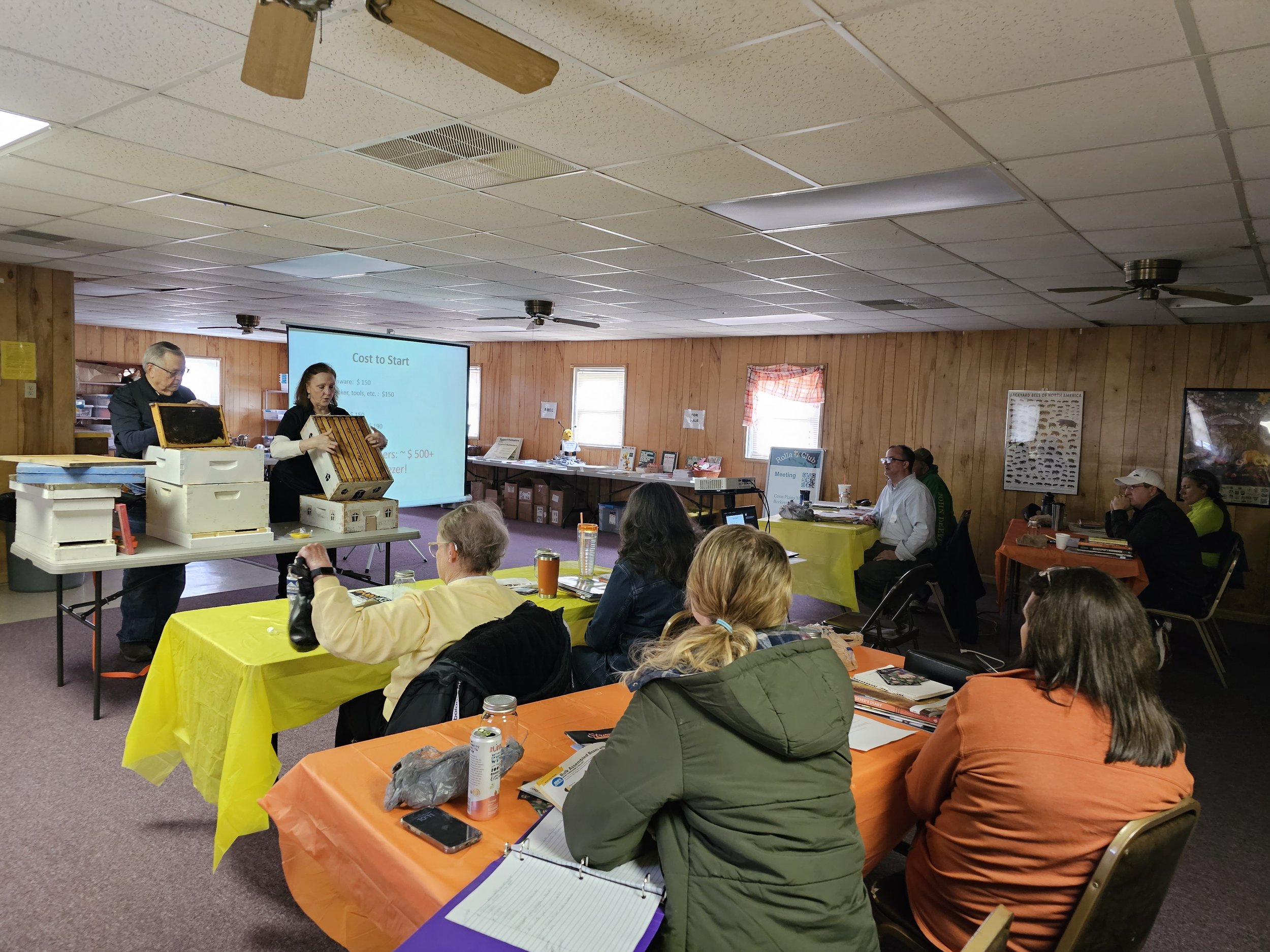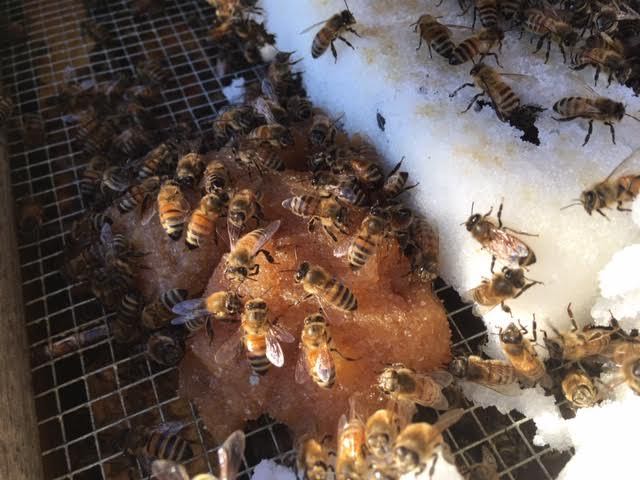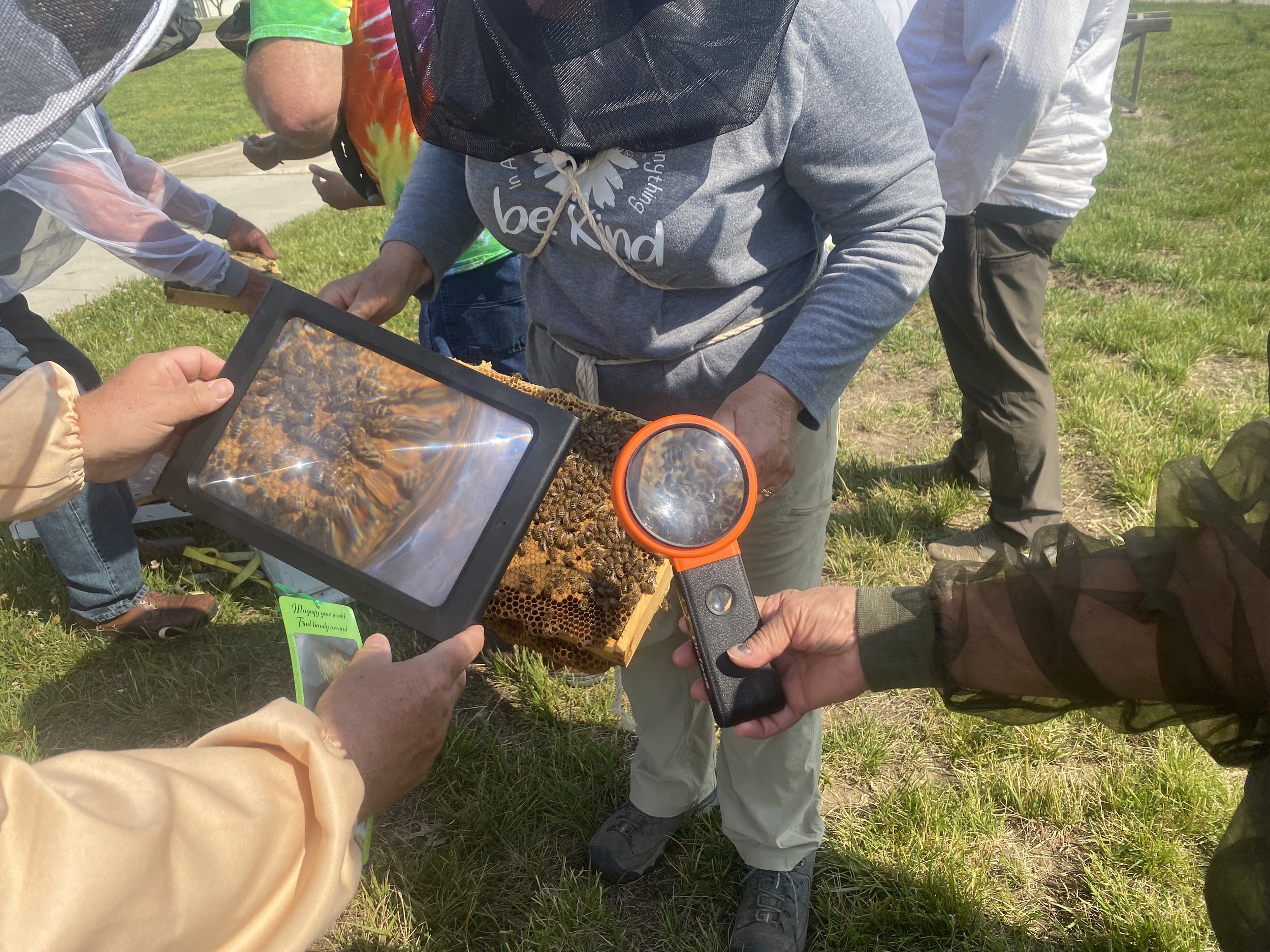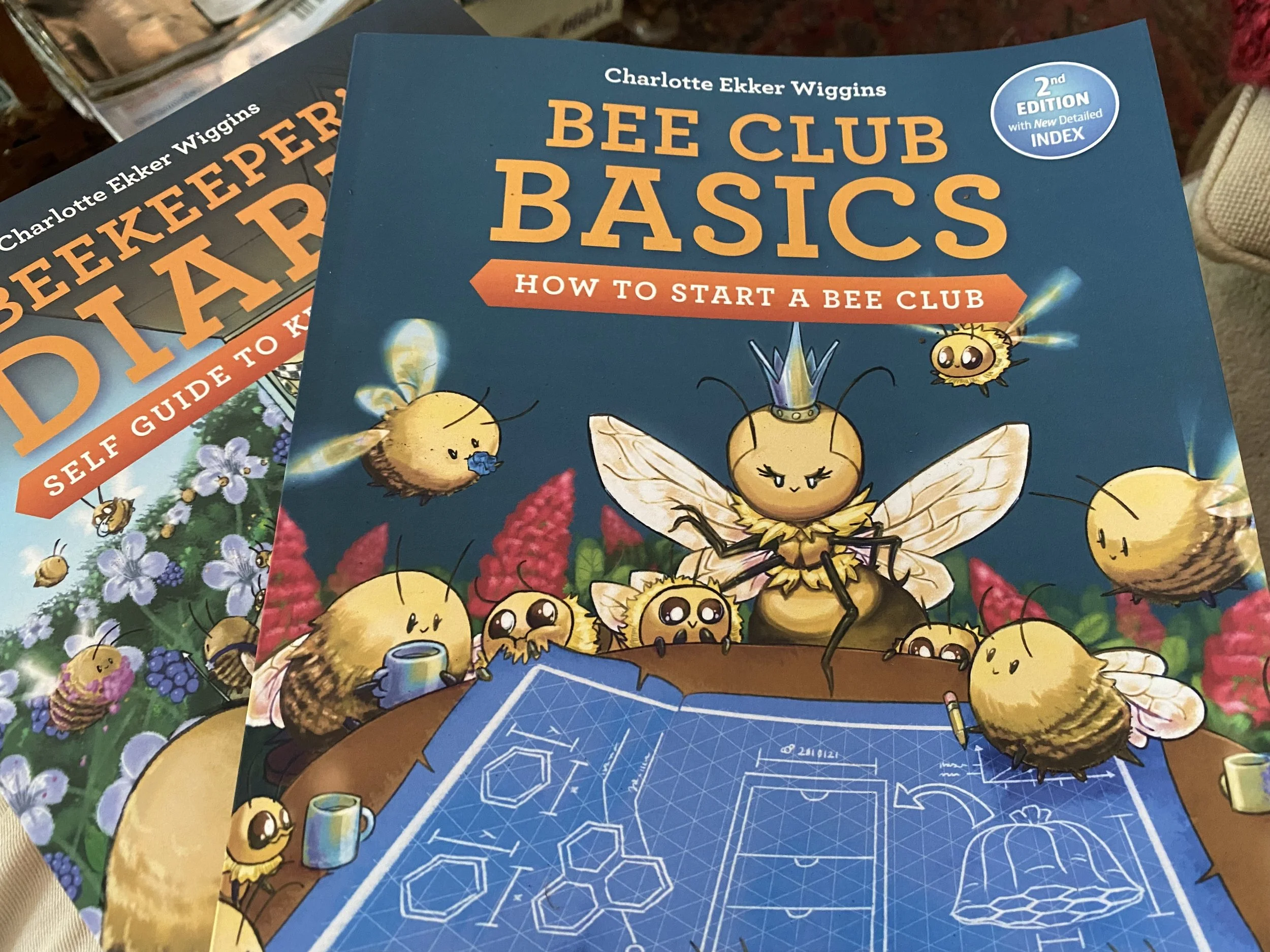Calling a Beekepeer
/This “call” has been taken care of but is an example of calls coming in. (Photo by Charlotte Ekker Wiggins)
Calling a Beekeeper
If you’re a beekeeper, not only is this a busy time of year with your bees but also with the rest of the world. Bees in trees, bees flying around back doors, bees getting into garages - people email and call for help to get flying insects off their property, because they or family members are allergic, and sometimes to “save the bees.”
Regardless of the reason for calling, if you have bees where you don’t want them:
Don’t panic. Honey bees won’t hurt you unless they are being attacked. Route traffic around the area until you can identify what is happening.
Determine if they are indeed bees. Take photos and videos you can easily share; beekeepers can’t help you with other possible pollinators like wasps.
If you don’t know where to start, call your local Extension Office. They usually know who to call if this is an issue with bees.
Your local exterminators also usually have beekeeping contacts. Many where i live refuse to kill a bee colony so try to first find a beekeeper.
Find the closest bee club. State beekeeping associations usually have a list of local bee clubs. As of this spring, Missouri had 47 local bee clubs.
If these are bees established in a house wall, you will need a contractor to work with the beekeeper to try to locate the bees and remove them. There will be a cost involved for sure with the contractor and possibly with the beekeeper.
Finally, be patient. Most beekeepers are busy this time of year and help others out on their own time. If they can help they will but it can take time to find someone in the area who can help.












